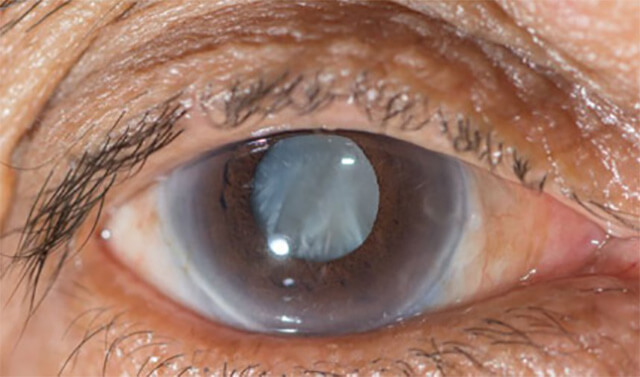
Cataract
What is Cataract ?
A cataract is the clouding of the lens of the eye that makes it difficult to see. It can affect one or both eyes. Cataracts are common in older people but may also occur in young people as well as children too.
What are the Risk Factors of a Cataract ?
The risk of a cataract increases with age. Other risk factors include:
- Some diseases such as diabetes
- Smoking
- Alcohol use
- Prolonged exposure to sunlight
What are the Signs of a Cataract ?
Signs of a cataract develop slowly over time.
- Cloudy or blurry vision
- A halo is seen around lights or lights are too bright
- Poor night vision
- Double vision
- Colors seem faded
What care should be taken by you?
See an eye doctor if you have any signs. Your doctor will do an eye exam to check for problems. If your vision problems interfere with your daily activities, your doctor may suggest surgery. During surgery, the cloudy lens is removed and replaced with an artificial lens. You and your doctor will decide together if surgery is the best treatment option for you.
Your lens may cloud slowly over time, so you may not need surgery for years. Your doctor may suggest new glasses, brighter lighting, anti-glare sunglasses or magnifying lenses to improve your vision. Be sure to have regular eye exams so that you and your doctor can discuss when surgery is needed.
How to Protect Your Vision ?
- If you are age 60 or older, have an eye exam with dilation at least every two years.
- Eat plenty of green, leafy vegetables, fruits and other foods with antioxidants.
- Wear sunglasses and a hat to block ultraviolet sunlight.
- Manage diabetes with the help of your doctor and dietitian.
- Quit smoking.
- Limit alcohol.
Does a cataract affect both eyes at once or one of them?
Classically, cataracts develop symmetrically in both eyes, while in one of them it is usually more pronounced.
Is it possible to do without surgery for cataracts?
To date, the only way to eliminate the cataract is a microsurgical cataract operation, which consists in removing the clouded lens of the eye and replacing it with an artificial lens or an intraocular lens. In terms of its optical properties, an intraocular lens is similar to a natural lens. It is very reliable and can stand in the eye for a lifetime.
Changes in the lens are irreversible, and no drops, special glasses, diet or exercise can make it to become transparent again. There is a widespread belief that vitamin drops help inhibit the further development of cataracts. But in reality, it's impossible to reverse the changes which are already there in lens.
Should we always wait till the cataract gets 'MATURE'?
Well, this is an old and outdated concept now. In old days, the lens was removed entirely. This required making a larger incision, and the incidence of postoperative complications was much higher than now. That is, the patient had nothing to lose - the eye could no longer see, which relatively reduced the risk of surgery.
But in today's era, Modern cataract surgery is performed by ultrasonic phacoemulsification which allows your doctor to remove the clouded lens through a microscopic surgical approach, which significantly reduces the risk of complications. Therefore, the operation can be carried out at any stage of cataract development, even with relatively high vision.
Is there any contra-indication for the cataract surgery?
The only contra-indication in today's Hi-Tech era is Patient's unwillingness.
These all details in just for basic information about the diseases. Please consult your doctor before following this by yourself. --- Dr Dhaval Patel (MD, AIIMS Delhi)
- compiled & published by Dr Dhaval Patel MD AIIMS